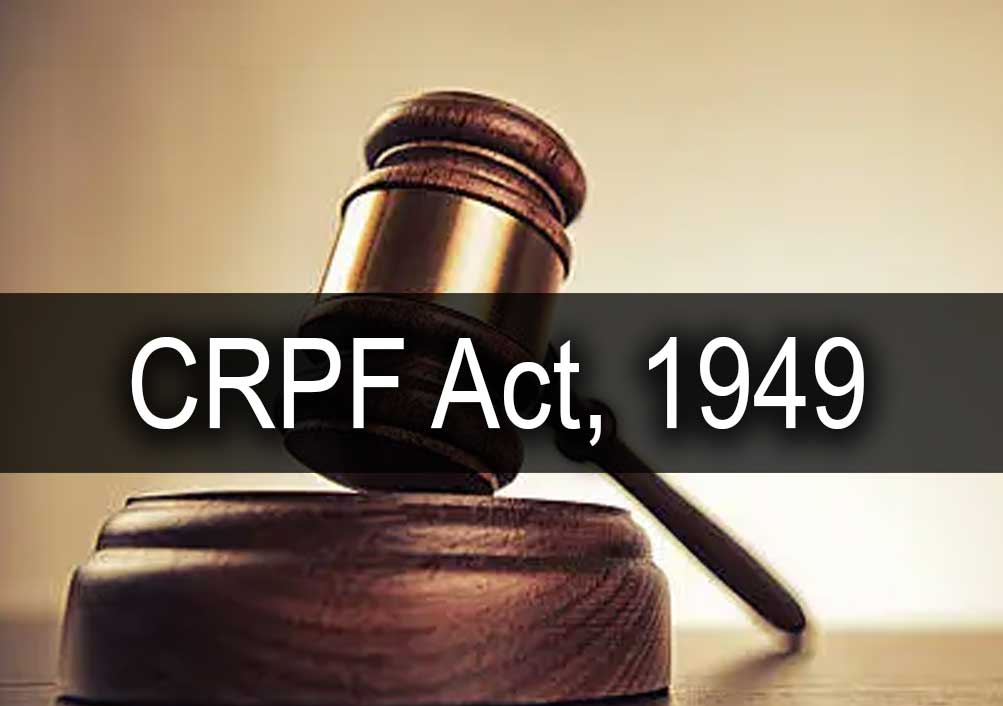Delhi HC completely overlooked Sec.11 of CRPF Act, 1949, while altering punishment imposed on Ex-Constable: SC

Read Judgment: Union of India & Others vs. Ex. Constable Ram Karan
Pankaj Bajpai
New Delhi, November 15, 2021: The Supreme Court has opined that it is the disciplinary authority, or the appellate authority in appeal, which is to decide the nature of punishment to be given to the delinquent employee.
Keeping in view the seriousness of the misconduct committed by such an employee, it is not open for the Courts to assume and usurp the function of the disciplinary authority, added the Court.
A Division Bench of Justice Ajay Rastogi and Justice Abhay S. Oka observed that if any nature of heinous offence being committed, if found proved, member of the disciplined force shall be punishable for dismissal and removal from service, as reflected u/s 11(1) of the Central Reserve Police Force Act, 1949.
The observation came pursuant to an appeal preferred at the instance of the Union of India challenging the order passed by Delhi High Court, whereby it had substituted the penalty of removal from service inflicted on Ex. Constable Ram Karan (Respondent) after holding disciplinary inquiry as provided under Rule 27 of the Central Reserve Police Force Rules, 1955 with confinement of respondent from 1.00 p.m. to 10.00 p.m. in quarter guard jail, without noticing the mandate of the nature of punishments indicated u/s 11(1) of the 1949 Act.
The background of the case was that, when the Respondent was on attachment duty at Group Centre, CRPF, he accompanied his wife forcibly in the chamber of Dr. Nazir, Gynaecologist (complainant), and asked him to attest the reimbursement of medical claims. Upon refusal of the complainant, the respondent verbally abused and physically struck the complainant, resulting in injuries.
In order to conceal his misconduct, the respondent also made a false allegation of sexual harassment on his wife against the Doctor-complainant. For such a gross misconduct, the respondent was placed under suspension.
After a departmental inquiry was conducted, the respondent was punished with the penalty of removal from service. The matter travelled to the High Court, which upheld the charges which were found proved by the disciplinary authority. However, the High Court substituted the penalty of removal from service and recorded a finding that looking into the nature of allegations which stand proved, the punishment of removal from service is disproportionate to the proved misconduct.
After considering the facts and evidences, the Top Court said that the nature of allegations against the respondent are indeed grave in nature as the respondent not only threatened the Doctor complainant but has misbehaved and abused and injured him and made false allegations against him of sexual harassment to his wife.
Such a nature of misconduct which has been committed by the respondent once stand proved is unpardonable and if the authority has considered it appropriate to punish him with penalty of removal from service, there is no sympathy for retention in service and that too in a discipline force like CRPF, added the Top Court.
Stating that judicial review on the quantum of punishment is available but with a limited scope, Justice Rastogi observed that even in cases where the punishment imposed by the disciplinary authority is found to be shocking to the conscience of the Court, normally the disciplinary authority or the appellate authority should be directed to reconsider the question of imposition of penalty.
Justice Rastogi also observed that Section 11 of the Act 1949 has been completely overlooked by the High Court while examining as to whether the punishment of removal from service could be inflicted in lieu of or in addition to dismissal from service to member of the force, if the misconduct stands proved in the course of disciplinary inquiry.
Hence the Apex Court concluded that the High Court should not have substituted its own discretion for that of the authority, and allowed the appeal.
Sign up for our weekly newsletter to stay up to date on our product, events featured blog, special offer and all of the exciting things that take place here at Legitquest.




Add a Comment